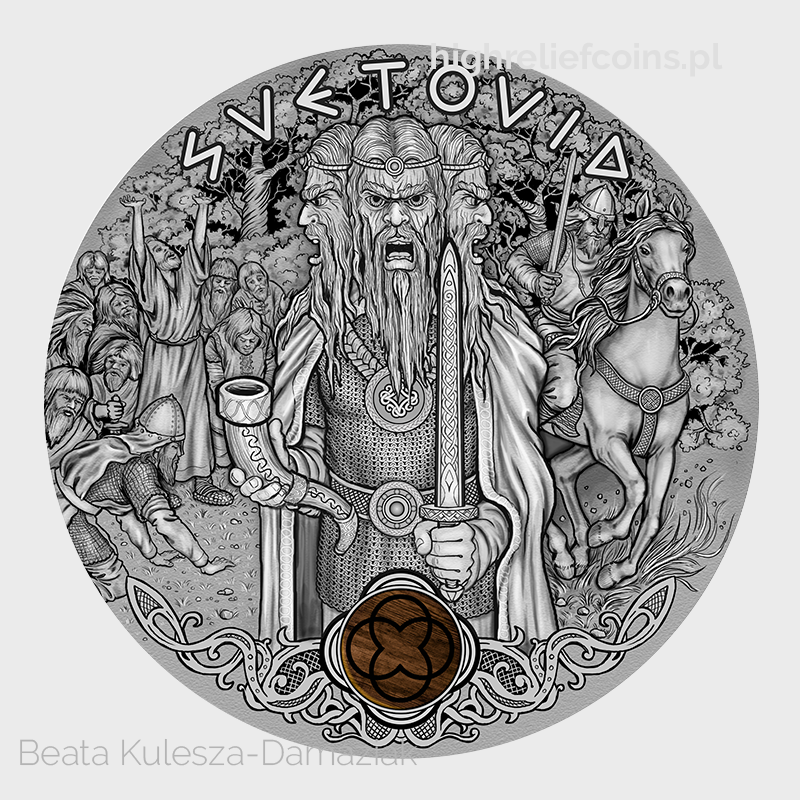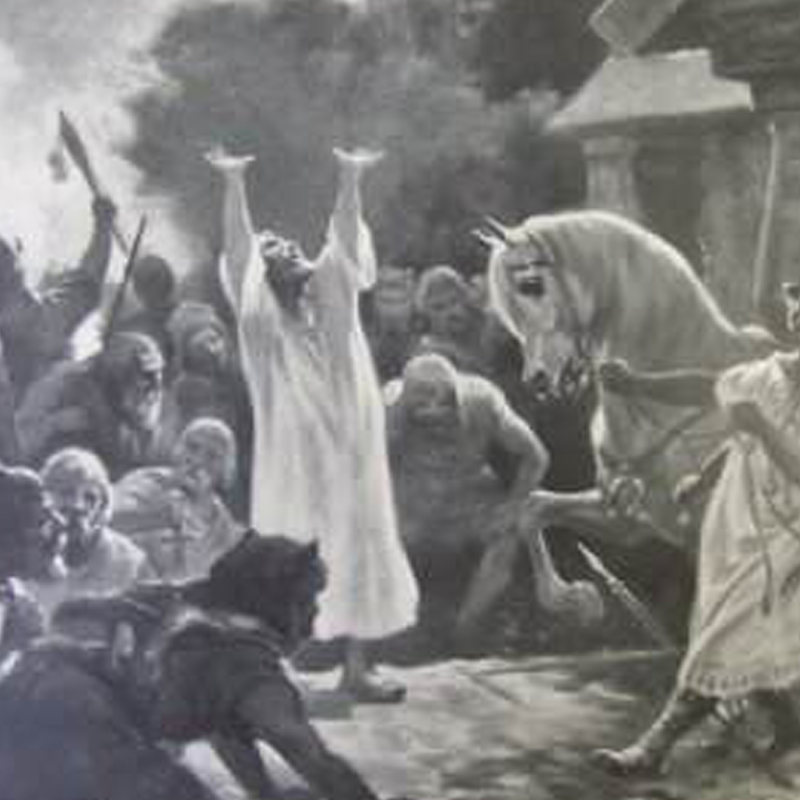Svetovid, Slavic Gods series, Niue 2019, 2 dollars, 2 oz, 50 mm, antique finish high relief coin, oak insert, client: Mint of Poland, producer: Mint of Poland.
***
Svetovid or Svetovit (“sacred lord”) was the main deity of the Polabian Slavs. He was a god of war, light and power. Some researchers say that Sventovid was the same god as Perun (see: the first coin in this series). But Perun, until the times of Vladimir the Great, was an amorphous god. First known statues of Perun was erected by Vladimir, however Svetovid, according to Gesta Danorum by Saxo Grammaticus, was always sculpted as a four-headed god. On my drawing Svetovid has faces wrinkled as if they were carved in old wood. We don’t know if we see a real organic god standing in front of us or a simple wood sculpture…
The attributes of Svetovid:
— a horn filled by the priest during the holidays with honey – this fortune-telling was supposed to foretell an abundance of harvests;
— a sword—in my design it is decorated with typical Slavic ornament;
— a white horse that foretold victory or defeat before the battle, depending on whether it was starting to gallop from the right or left leg.

Behind Svetovid on the right we see a warrior on horseback: the horse starts from its right hoof! On the left side of the reverse, I reproduced a scene taken from the painting by Józef Ryszkiewicz, The Wróżba przed bitwą (Devination before the battle). But I changed some details of this painting, for exemple: instead of a man with a hat made of an animal’s head, I drew a Slavic warrior in a chain mail.

There was a problem with the symbol of Svetovid on the insert. On the reverse of Perun the sign engraved on wooden instert was indeed an actual symbol of Perun used by the tribes of the Slavs. The slavic symbol of Svetovid was swastika, the common solar sign. As we know swastika became a nazi emblem, so I invented my own neutral symbol of Svetovid: four petals of flowers (harvest), symbolizing faces looking at the four corners of the world.
The obverse is the same for all coins in this series. See: Perun.
